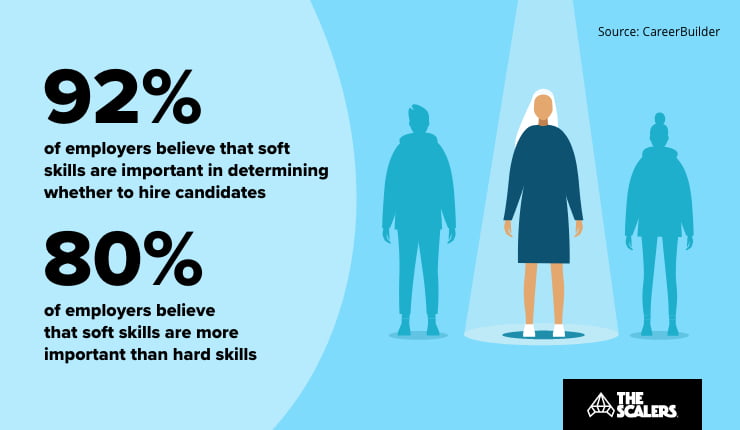4 Lessons We have Learned About the Subtle Art of Hiring Engineers
As experts in building development teams in Bangalore, we’ve learned a few valuable lessons on the subtle art of hiring engineers in 2020. Let’s dive deeper.
1. Soft skills matter more than you might think
A fairly common assumption among recruiters and employers is that when hiring engineers, only technical skills truly matter while soft skills are ‘nice to have’. In fact, recruitment teams sometimes forget that soft skills are indeed skills that can be measured and evaluated.
So, if you’re a business that wants to grow 10X in the next few years, you need to assemble a solid team with the perfect balance between technical and soft skills to take you there.

At The Scalers, the engineers we hire must be equally skilled with both code and colleagues. The first step in our 7-step recruitment process is a pre-screening interview where our interviewers spend 20-30 minutes to understand the personality of a candidate.
Some of the questions asked during this round are —
- How do you communicate technical complexities?
- Have you been a part of a team that has had to be restructured or adapt to unforeseen changes? If yes, how have you reacted to it?
- Can you share examples of close collaboration across functions such as Engineering, Product, Design, etc.?
- What is your proudest achievement?
- How have you resolved conflicts with your peers in the past?
The answers to these questions throw significant light on the candidate’s thought process, their personality, how they approach conflicts, and more. If we’re satisfied with a candidate’s responses, we then proceed with the next interview rounds.
2. Measure, refine, and repeat
No recruitment process is ‘perfect’. However, what matters is finding a process that works for your organization and your unique hiring needs.
For example, you may find that the coding exercise alone isn’t enough for you to determine who to hire. In other instances, your screening parameters may need to be tweaked depending on the profile you’re hiring. Whatever the case is, the key is to measure how your recruitment process is performing, refine it, and then repeat it all over again.

“Every client partner’s business requirements are unique. To address this, we’ve built a dynamic recruitment process — one that implements the feedback from both our recruitment and technical teams, thus ensuring a tailor-made solution.”
This is probably one of the most important lessons that we, at The Scalers, learned. And that’s why, once every few weeks, we measure how our recruitment process has been performing, the percentage of candidates that have passed the screening process, employee retention rate, performance reviews, and more.
We also gather valuable feedback from the pre-screening interviewers, the account management team, and the technical coordinators to further refine our process of hiring engineers.
3. Candidate engagement is key
One of the biggest hiring lessons we’ve learned is the importance of employee engagement. Hiring engineers are actually part sales, and the best sales are built on good relationships!
In fact, employee engagement begins right from the first contact. As the candidate progresses from one interview round to the other, it’s essential to keep them updated about where they are in the process, even if it’s “I don’t have an update for you at the moment, but here’s what you can expect in the next few days.”
Read more to learn valuable lessons on the art of hiring engineers.

Comments